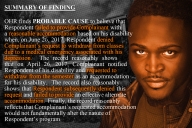You have /5 articles left.
Sign up for a free account or log in.

Ihor Reshetniak/iStock/Getty Images
In the year since COVID-19 forced most colleges and universities to shut their physical campuses, lawyers have filed more than 300 cases on behalf of students and parents demanding refunds of tuition for educations they deemed to be either substandard or not what they were promised.
While judges have dismissed many of those cases, finding them to be without merit or to fail to state a legitimate legal claim, dozens of other courts have given the plaintiffs preliminary victories by allowing the lawsuits to go to trial -- and at least two colleges have agreed to pay millions of dollars to settle lawsuits.
On balance, though, most legal experts agree that the tuition reimbursement cases face a generally uphill climb in the courts -- because judges give institutions broad latitude to determine the quality of their education and tend to dismiss claims of educational "malpractice."
The courts thus far have proven somewhat more open to considering lawsuits alleging that colleges have breached their contracts with students and families -- though those cases will rise or fall based on situation-specific facts of how clearly a college promised that the education would be delivered in person.
"These are going to be tough cases to make," says Barry G. Burgdorf, special counsel at Pillsbury Winthrop Shaw Pittman and former vice chancellor and general counsel at the University of Texas system. "There's still the possibility that a few of them squeak through and get to a trial, though."
Lawsuits by the Hundreds
It didn't take more than a week or two for students and families -- and plaintiffs' lawyers -- to begin seeking redress for their colleges' decisions to pivot to remote learning last spring. Even as many colleges and universities announced plans to refund fees for housing and dining services they would no longer deliver, groups of students at scores of institutions went further, suing for tuition refunds as well.
Exactly how many lawsuits were filed isn't clear; several early lists that sought to document all the filings lapsed months ago, even though families have continued to file lawsuits through last month, when public universities in Oregon became the latest targets.
“The University of Oregon, we believe, has unfairly continued to charge tuition payers for all of the things they were not allowed to experience and use during the COVID-19 campus closure and switch to online classes,” Steve Berman, whose law firm, Hagens Berman, has brought more than two dozen such cases, said in a news release about the Oregon case.
Much of the early rhetoric around student unhappiness about their COVID-19 experiences described the inadequacy of the remote learning colleges delivered. "Zoom University Is Not Worth $56,000" was the headline on an op-ed by a Gettysburg College student last spring, expressing a typical sentiment that "the quality of education we are receiving is not on par with the 'Gettysburg Great' education we were promised when we enrolled."
The problem for views like these translating into courtroom victories is the educational malpractice doctrine, said Audrey Anderson, counsel at Bass, Berry and Sims and former vice chancellor and general counsel at Vanderbilt University. Courts in most states over time have embraced the position that colleges shouldn't be second-guessed about the quality of the education they offer, in part because quality is such a fuzzy concept to measure in higher education.
Unhappy students and parents are then left with one main option: asserting that colleges broke a contractual promise to provide a certain brand of education. This approach "doesn't require someone to show that online education was a lower quality," Anderson said. "They need to show that the institution clearly promised an in-person education that it didn't deliver."
Some judges, though, have declined to distinguish between breach-of-contract claims and educational malpractice, arguing that even breach-of-contract claims -- in one way or another -- assert that one form of education is worse than another.
Dismissing breach-of-contract and other claims against Occidental College, in California, Judge John F. Walter of the U.S. Central District of California wrote in December that "the theory underlying all of Plaintiffs’ claims is that the education [the student plaintiff] received once Occidental transitioned to remote instruction in response to the COVID-19 global pandemic was not 'worth the amount charged' or 'in [any] way the equivalent of [an] in-person education.'
"The resolution of Plaintiffs’ claims would require the Court to make judgments about the quality and value of the education that Occidental provided in the Spring 2020 semester … Therefore, the Court concludes that Plaintiffs’ claims are the type of educational malpractice claims that California courts, and courts throughout the country, have rejected."
Explicit contractual language between most colleges and students -- in the form of documents families sign about tuition payments or housing, say -- is relatively limited, so most of the analysis that courts conduct in breach-of-contract cases involves scouring promotional materials, webpages and other statements for "some kind of promise that’s been broken," Anderson said.
Getting Over the First Bar
The first major stage in any such lawsuit is when a judge decides whether to dismiss the claim outright or let it continue for discovery and a possible trial, and the legal standard at that stage requires that courts assume everything in the plaintiff's complaint is true.
Berman estimates that at least two dozen cases have survived this step. In December, a federal judge in New York refused to dismiss a lawsuit against Rensselaer Polytechnic Institute, saying that "Contrary to RPI's arguments, it made some bold claims -- or, plausibly, promises -- about its in-person programming and hammered repeatedly on the benefits of those programs in an assortment of circulars and even in its catalog. As it stands, plaintiffs have thus adequately alleged, through both the catalog and the Plan, that defendant has released a publication expounding the virtues of its in-person programming that it ultimately did not provide."
The judge went on to say, "By necessary implication, if RPI's arguments as to the nature of tuition carry the day, a school could expressly promise anything it wished in terms of the nature of its instruction -- even in its bulletins, circulars, and handbooks -- never even attempt to provide those things, yet be perfectly insulated from a suit to recover any portion of tuition so long as it actually provided some education to its students.
"New York's deference to educational institutions cannot reach so far as to deny students any recourse for breaches of express promises. Otherwise, the cemented rule that a university can be bound by promises in its bulletins, handbooks, and circulars would be devoid of any avenue for a plaintiff to recover for a breach of one of those promises because the school would be entitled to keep plaintiff's tuition payments regardless of any breach."
In March, a federal judge in Connecticut allowed a lawsuit against Quinnipiac University to proceed, ruling that the student plaintiffs suing the university alleged that Quinnipiac had both boasted about the importance of its "state-of-the-art facilities" and "outdoor spaces" and that it charged significantly less tuition for its online than for its in-person programs.
"Such allegations in combination with the parties’ alleged course of conduct allow the reasonable inference that the parties may have at least implicitly entered into a specific agreement for on-campus instruction by virtue of the plaintiffs having been charged under, and paid, the higher of these two tuition schemes while attending in-person classes during the first half of the Spring 2020 semester," Judge Kira A. Dooley wrote.
As in other such cases, Dooley also allowed the Quinnipiac plaintiffs to argue at trial that the university unjustly enriched itself by charging students full tuition for a virtual experience that lacked some of the benefits of in-person instruction.
"It can be reasonably inferred from these allegations that Quinnipiac accrued excess funds by moving its courses online, and the question of whether the institution was unjustly enriched by retaining the plaintiffs’ tuition -- which allegedly encompassed the costs of delivering in-person instruction and all of the attendant benefits that flow from it -- is a question improper for resolution on a motion to dismiss," the judge wrote.
Jeffrey P. Metzler, who like Burgdorf is special counsel at Pillsbury, said many judges consider unjust enrichment claims as incompatible with breach-of-contract claims, so that they will only consider the former only after they've concluded no contractual promise was breached. He also said he thought it would be difficult to prove unjust enrichment, since many colleges "lost a lot of money, too."
For cases that survive the dismissal stage, student plaintiffs and their lawyers must first persuade a judge that the college or university contractually promised an in-person education. Even getting over that bar won't be enough, though; plaintiffs will also have to try to quantify the damages they suffered from not being in person, which Metzler called "very challenging."
"How do you actually measure how much less you were educated?" said Burgdorf. "In gauging whether a student's job prospects were limited, for instance, there are so many variables. Can you show a University of A, B or C degree getting you less job prospects because it was delivered in this way?"
Gauging how much less valuable a virtual education was than a promised in-person education also risks edging into the territory that courts generally avoid around educational malpractice and assessing the quality of a learning experience, several legal experts agreed.
How Colleges Have Responded
Most institutions have aggressively fought the tuition lawsuits, but a couple have opted to settle cases to minimize legal costs and move on.
Southern New Hampshire University agreed in March to pay $1.25 million to settle a lawsuit, even though the university "strongly believes faculty and staff went above and beyond to help its students finish the semester strong and worked tirelessly to deliver the best SNHU experience possible given the extraordinary circumstances," Southern New Hampshire officials said in a statement.
Barry University, in Florida, settled a case against it for $2.4 million. Barry officials assert that the university "acted in good faith and in compliance with all government regulations in our efficient and effective pivot to remote learning," but the university "is pleased to be moving forward and to have reached a resolution that supports our students and their academic pursuits."
Quick math suggests that spreading the $2.4 million among Barry's roughly 7,000 full- and part-time students (3,500 undergraduates) would amount to about $350 apiece -- a sum that many colleges would probably pay to end legal threats against them.
Anderson, the lawyer at Bass, Barry and Sims, said colleges with clearly distinguishable online and in-person programs before the pandemic were "particularly vulnerable" to lawsuits like these, because they were more likely to talk about them differently and, in some cases, to price them differently.
She said colleges and universities seeking to avoid or protect themselves against such lawsuits going forward would be advised to scour their various documents and promotional materials to ensure that they don't make promises they can't keep.
"Up to now a lot of colleges haven’t thought very much about what they’re going to say about their end of the bargain" with students and families, Anderson said.
These lawsuits ought to give college leaders even more incentive -- if they needed it -- to ensure that they offer high-quality virtual learning experiences that engage students and allow them to interact with each other as they might on a physical campus.
"The more it's 'just watch the lecture when you have time,'" she said, "the likelier you might be to get sued again."









